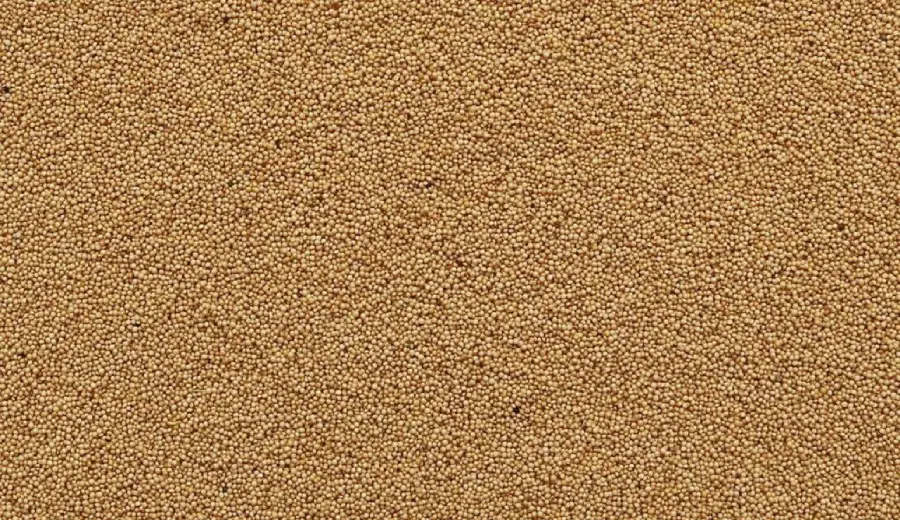
Sourcing amaranth for nutrient-dense product development? Nutrada connects you with verified suppliers offering bulk whole grain and flour formats. As a complete protein and naturally gluten-free, amaranth continues to expand its role in the global grains market.
Amaranth is a very nutritious seed from the Amaranthus plant. Ancient cultures, like the Aztecs, valued it and have grown it for thousands of years. People eat both the leaves and seeds. Amaranth has a slightly nutty flavor and is rich in protein, containing all nine essential amino acids. Today, it is popular in gluten-free, vegan, and plant-based diets. It is often mixed with quinoa and canihua in blends that are high in protein and safe for those with allergies. Amaranth can grow in many different climates, making it an important crop in the food market.
Amaranth grows best in warm places and is picked at different times depending on the local climate:
Amaranth is a plant that grows in many parts of the world. It grows quickly and can survive in dry conditions.
Amaranth was once very important in the diets and rituals of Mesoamerican cultures, especially for the Aztecs who used it in ceremonies and daily meals. Its use declined after colonial times, but now it is becoming popular again because of its great health benefits and current food trends.
Today, many health-conscious people choose amaranth because it is gluten-free and high in fiber, protein, calcium, magnesium, and iron. You can find it in ready-to-eat snacks, ancient grain mixes, and gluten-free baked goods. The growing interest in sustainable farming has also made amaranth more appealing because it can grow well with less input.
Are you looking to buy amaranth in large amounts for food production, retail packaging, or product development? Nutrada connects you with certified suppliers from important growing areas like Mexico, India, and Peru. Our platform helps B2B buyers find amaranth grains, flour, and puffed products.
Amaranth is typically sold in 25 kg food-safe bags. You can find it in both conventional and organic options. Bulk orders are normally meant for bakeries, manufacturers and amaranth importers who require large amounts for distribution or further processing.
Start your own line of amaranth products with the help of Nutrada’s private label network. You can create gluten-free porridge, amaranth flour blends, or healthy snack mixes. Our suppliers help with packaging, co-packing, and meeting regulations for both local and export products.
Organic amaranth is gaining popularity in health and plant-based markets. It is known for its great nutrition and environmentally friendly growing methods. You can find organic amaranth grains and flour in breakfast cereals and snacks. Nutrada helps to match buyers with certified organic amaranth producers from Mexico, India, and Latin America.
Register on Nutrada to find reliable amaranth manufacturers with verified certifications. Check suppliers' qualifications, ask for documents, and request a price through our platform.